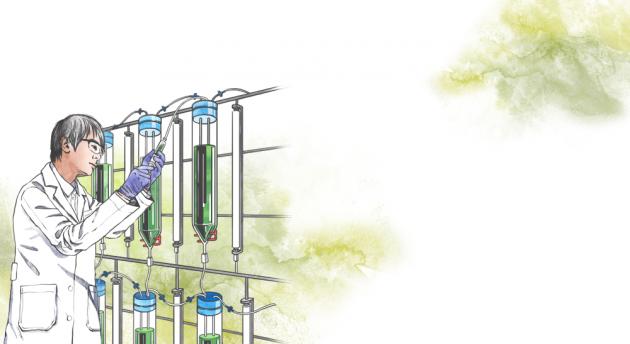As the Nagoya Protocol, an international agreement on using foreign biological resources, goes into effect in Korea Thursday, the domestic bio industry should urgently work out measures to cope with it, a state think said.
Unlike some countries blessed with abundant biological resources, Korea mostly uses foreign resources, and therefore will likely reveal a considerable difference of views from those who provide the resources, it noted.

Korea Institute of Intellectual Property(KIIP)한국지식재산연구원 called for the nation to create a cooperative system with resources providers, in its recent report titled “International trends on forming intellectual property standards to protect biological and genetic resources and their policy implications.”
"Because economic interests are involved in sharing biological and genetic resources and related conventional knowledge, it's hard to narrow down the gap between the positions of resource users and providers,” the report said. “The providers will strongly ask users to comply with the Nagoya Protocol to protect biological and genetic resources and conventional knowledge in multinational or bilateral talks.”
It is necessary to develop businesses and policies to promote the bio industry and make close cooperation with resource providers to share biological and genetic resources information, it added.
The Nagoya Protocol is expected to have negative effects on the Korean industry, but countries are also talking about the need to develop international standards to properly divide the benefits from the use of genetic and other resources between providers and users.
The providers and users, for instance, have shown a considerable difference in their positions on which genetic resources to protect.
Providers say not just biological and genetic resources, but their derivatives should be included in the protectable range, while users oppose it, claiming the definition of derivatives is ambiguous, and if they include them into the objects of protection, it will make patent application so complicated as to make would-be applicants give up.
Users also worry if the derivatives of biological and genetic resources are included, users will have to shoulder heavier burdens from sharing benefits.
"The Nagoya Protocol contains no mention of the derivatives except for their definition. As the definition of genetic resources can be interpreted as including derivatives indirectly, however, any expansion of the protectable scope has room for controversy,” the report said.
Korea became the 98th member of the Nagoya Protocol on Aug. 17.

